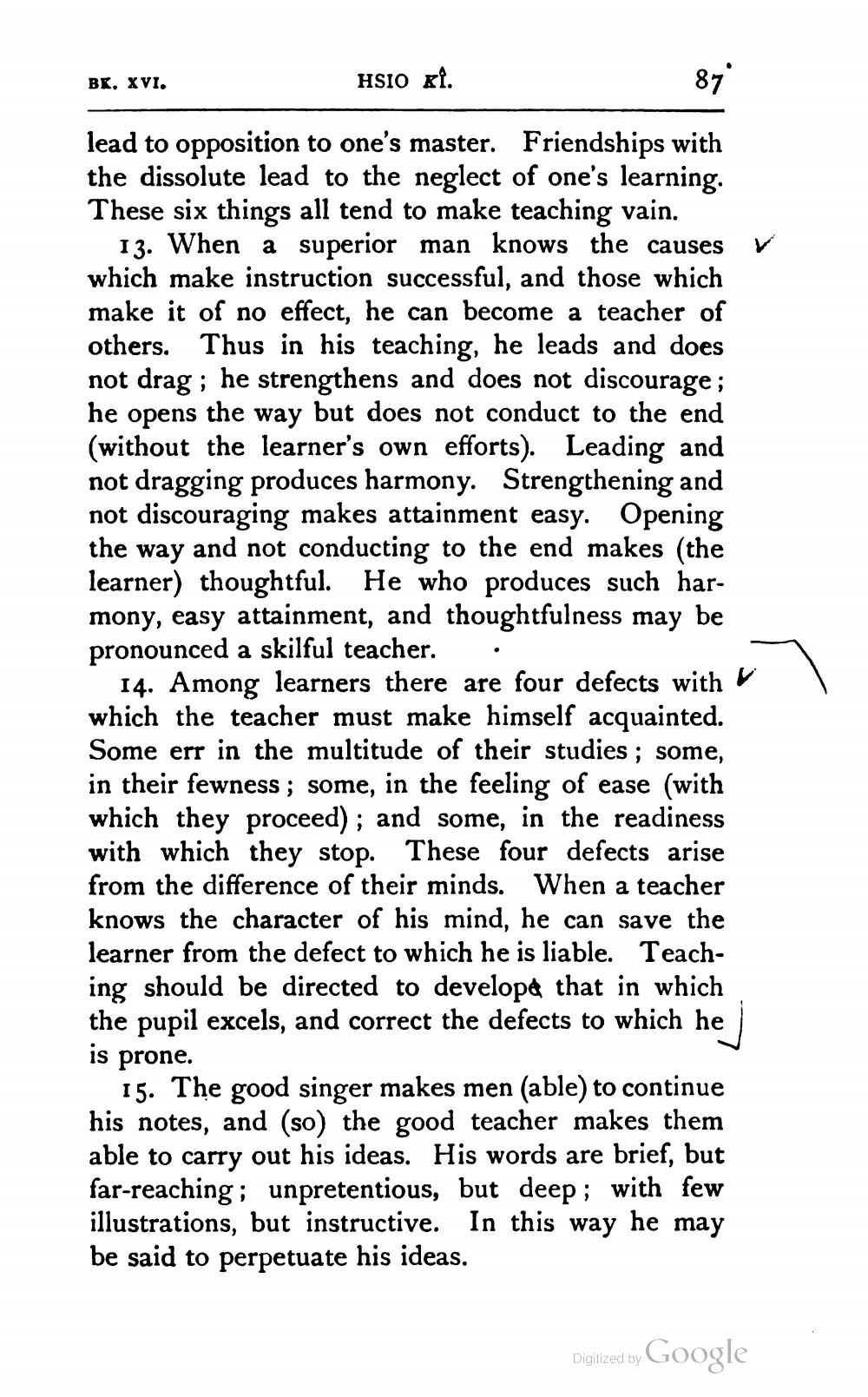________________
BK. XVI.
HSIO ki.
lead to opposition to one's master. Friendships with the dissolute lead to the neglect of one's learning. These six things all tend to make teaching vain.
13. When a superior man knows the causes which make instruction successful, and those which make it of no effect, he can become a teacher of others. Thus in his teaching, he leads and does not drag; he strengthens and does not discourage; he opens the way but does not conduct to the end (without the learner's own efforts). Leading and not dragging produces harmony. Strengthening and not discouraging makes attainment easy. Opening the way and not conducting to the end makes (the learner) thoughtful. He who produces such harmony, easy attainment, and thoughtfulness may be pronounced a skilful teacher.
14. Among learners there are four defects with which the teacher must make himself acquainted. Some err in the multitude of their studies ; some, in their fewness; some, in the feeling of ease (with which they proceed); and some, in the readiness with which they stop. These four defects arise from the difference of their minds. When a teacher knows the character of his mind, he can save the learner from the defect to which he is liable. Teaching should be directed to develope that in which the pupil excels, and correct the defects to which he is prone.
15. The good singer makes men (able) to continue his notes, and (so) the good teacher makes them able to carry out his ideas. His words are brief, but far-reaching ; unpretentious, but deep; with few illustrations, but instructive. In this way he may be said to perpetuate his ideas.
Digited by Google




